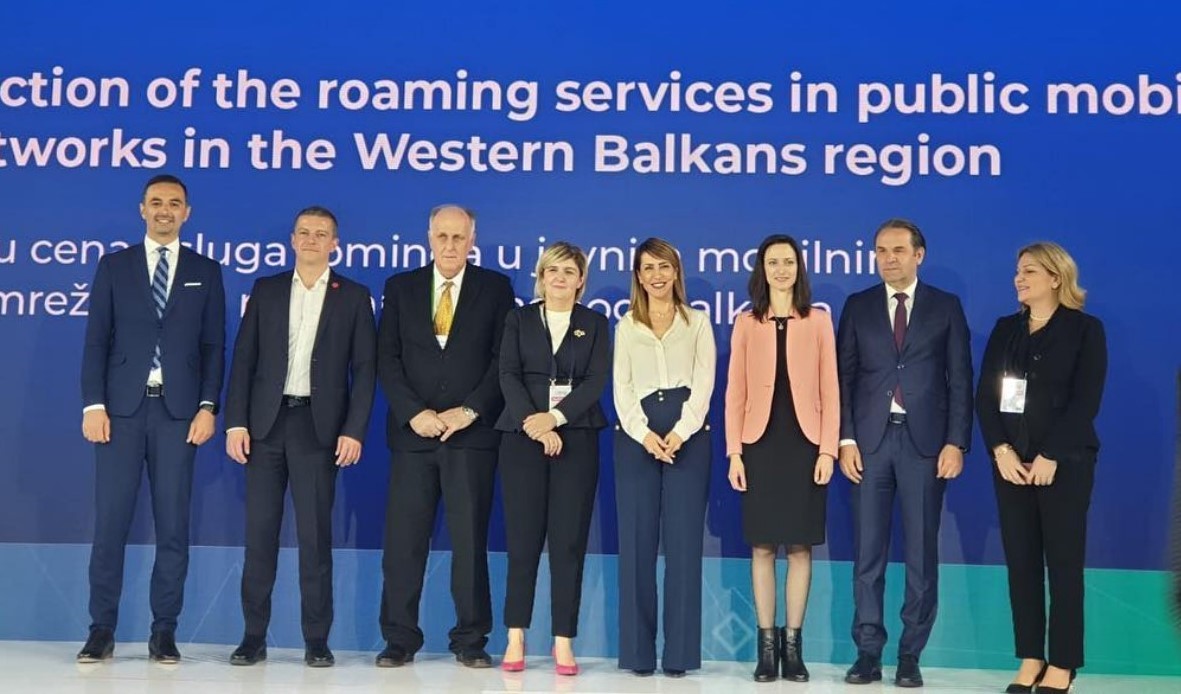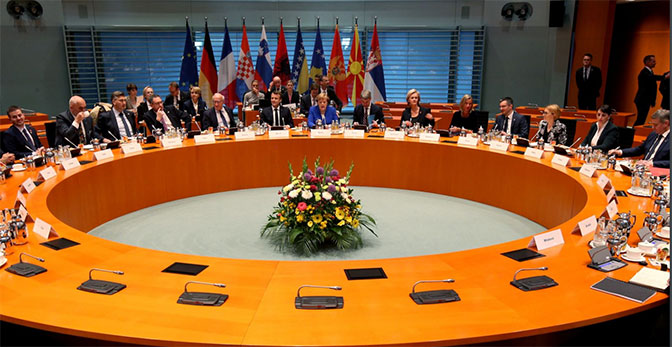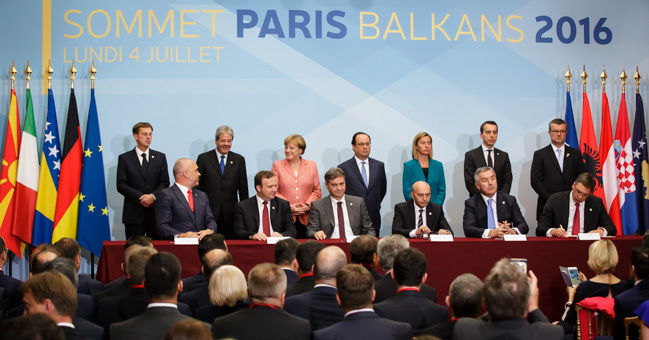Telecommunications
Kosovo and Serbia reached the Agreement on Telecommunications on 8 September 2013, after two years of negotiations.
They agreed to allocate an international country code to Kosovo, to define the border of telecommunication between the two countries and to regulate the issue of unlicensed operators in Kosovo (VIP, Telekom Srbija, and Telenor), for the purpose of improving citizens’ quality of life.
Prior to this agreement, unlicensed Serb telecommunication providers have operated in the territory of Kosovo (with 72 base stations) along with Kosovo operators, creating two parallel telecommunication systems in the country.
- The Serbian unauthorized system;
- Kosovo’s system.
Kosovo did not have an international country code and was using three different codes:

Calls inside the territory of Kosovo were treated as national or international, just based on the company that operated in a particular area.
Serbian communities in Kosovo and Albanian communities in Serbia were the most affected. In most cases they were using two mobile phones; one to communicate with Serbia and the other with Kosovo. Or in Mitrovica’s case; where the lives of people who lived there were connected to both sides of the river, citizens would use two phones; one to communicate with the north and one with the south side of the river as the service providers were not recognized.
On 25 August 2015, parties reached the Telecom Action Plan. This plan granted Kosovo the right to administer its own Country Code (as other countries), while Kosovo Telecom Regulatory Authority (RAEPC) in cooperation with the International Telecommunications Union (ITU) would ensure the implementation of the country code.
Some controversies existed among both parties about the wording to be used to refer to the code. Although Kosovo requested to include the part that Kosovo would be the holder of the “country dialing code”, the mutual solution came to the “… international code (S) for Kosovo”.
On 4 January 2016, Austria applied for the country code on Kosovo’s behalf, and in December 2016, ITU allocated the country code +383 to Kosovo, making the country present in online telecommunication registers.
The whole process depended on the consent of Serbia because only the UN member states can be part of ITU.
A part of this agreement was dedicated to addressing the issue of Serbian unlicensed operators in Kosovo. To end their operation and to ensure communication in particular areas, Kosovo agreed to issue a permanent license on fixed telephony and a temporary license on mobile telephony, to a company MTS d.o.o, a subsidiary of Telecom Srbija. The temporary permission will be valid until the opening of the international tender for a third mobile operator in the country.
MTS operates under Kosovo regulations, with 30 base station locations and enables people to communicate with and from Serbia without dialing a country code and without additional costs.

The licenses officially entered into force in December 2016 and RAEPC issued 60,000 mobile and 74,000 landline numbers.
Kosovo’s country code started to function on 2 February 2018.
Through this agreement:
- Kosovo got its own country code(+383) and stopped using the three foreign codes (+377, +381 and +386);
- Domestic (Kosovo) operators stopped spending high financial costs for paying foreign operators to use their codes (due to the absence of a Kosovo country code) as Vala did to Monaco Telecom (amounted to over 200 million Euros loss);
- Cheaper and easier communication is ensured within and outside of the country;
- Opened the path for reaching a technical agreement in postal services between Kosovo and Serbia in the near future;
- Kosovo was able to sign the Roaming agreement (part of the Berlin process) with five other Balkan Countries in July 2019. The signatory countries will be able to communicate with no roaming from July 2021, while for now, they are benefiting from the reduction of cost by 8 times for regional calls and the reduction of internet cost from 3.0 €/MB to 0.20 €/MB;

Berlin Process
It is an EU initiative for the Western Balkans, which was launched on 28 August 2014 to boost the cooperation among the six Western Balkan Countries: Albania, Montenegro, Kosovo, Serbia, North Macedonia and Bosnia and Herzegovina and to aid their integration into the European Union.




